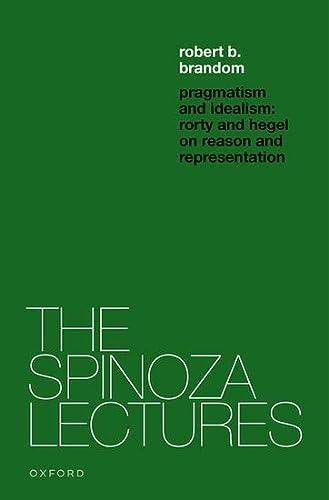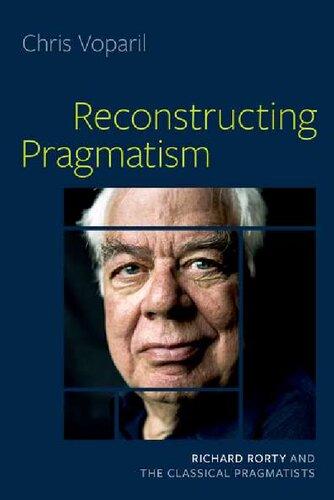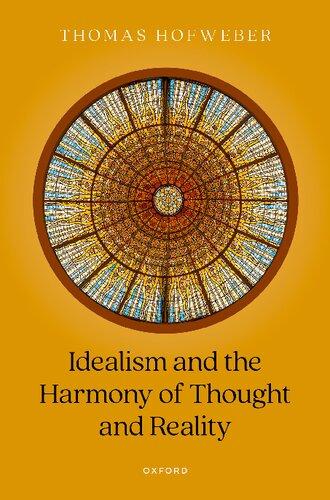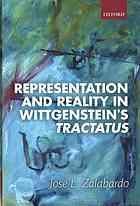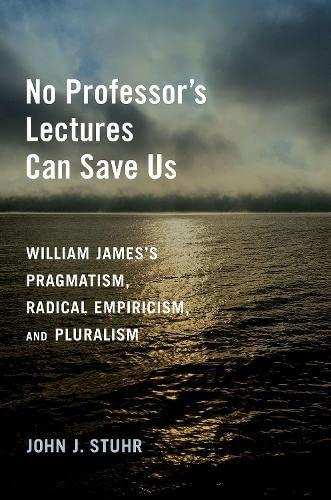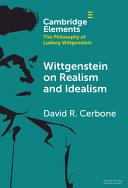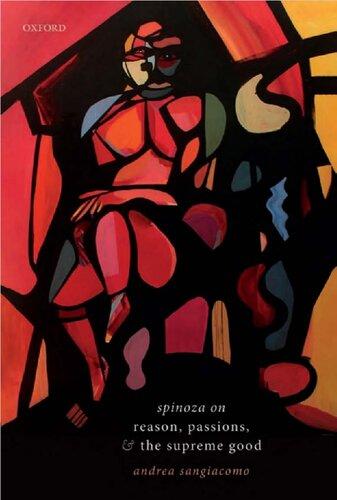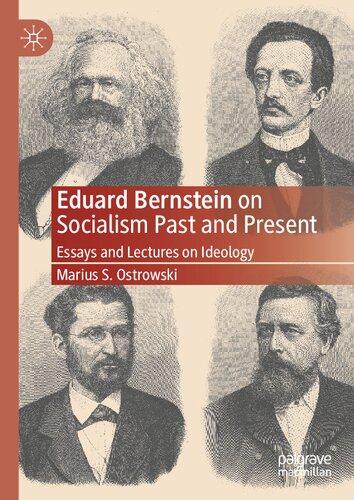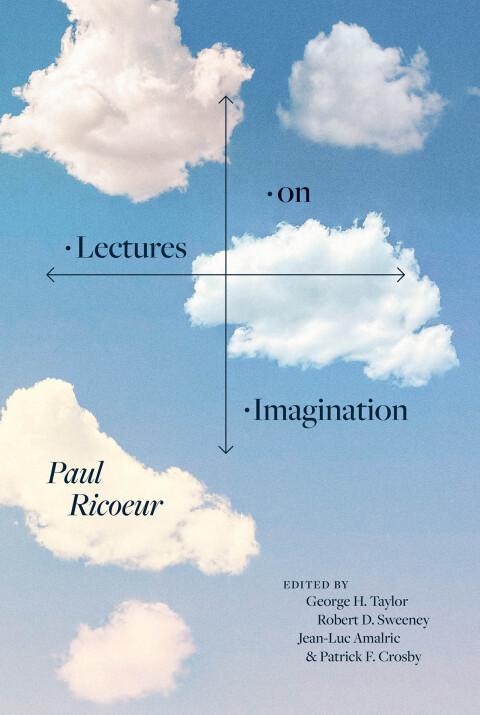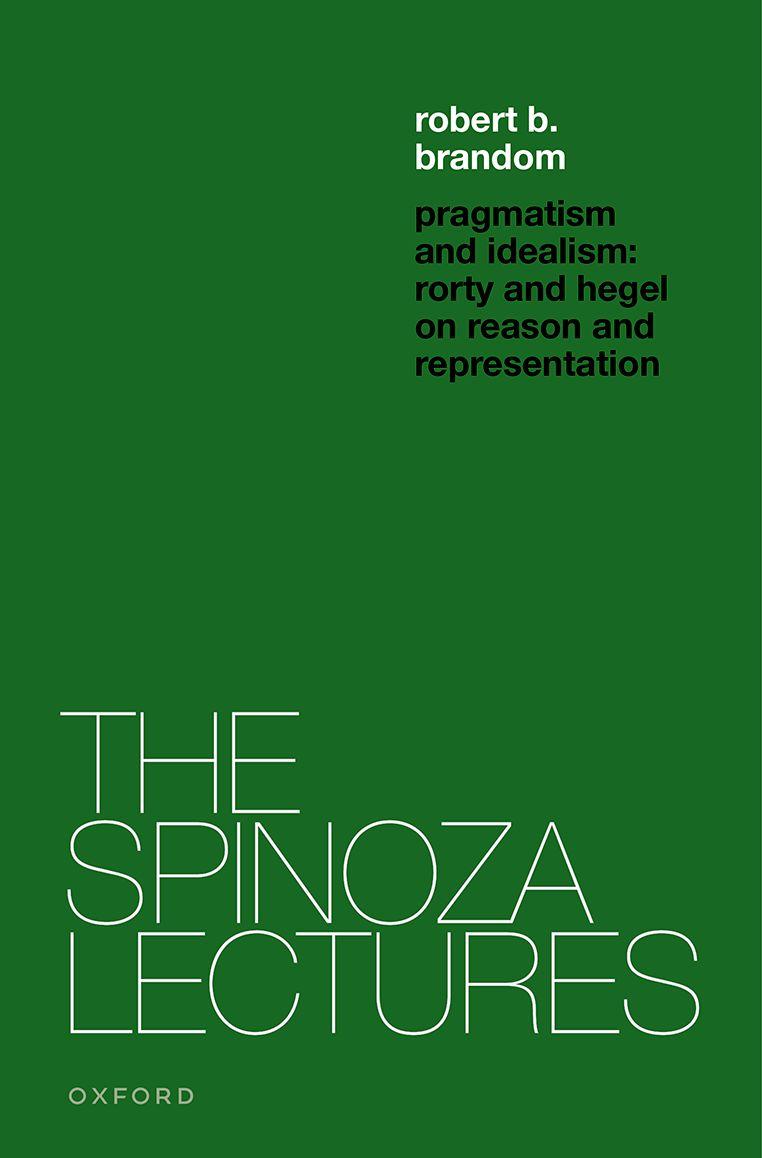Lecture PRAGMATISMAS COMPLETINGTHE ENLIGHTENMENT
ReasonagainstRepresentation
I
GenerationsofGermanphilosophystudentsweretaught earlyonthattheyfaceastark,ineluctable,existentially definingchoice: “Kant,oderHegel?” Thethoughtwasnotthat oneneededtopickoneortheotheroftheseseminal,dif ficult, multifariousphilosopherstoconcentrateonandmaster.Itwas that,struggleasonemight,onewouldinevitably findoneself allied withoneortheother conceptually,methodologically, andeventemperamentally andthatthedifferencewouldresonatethroughoutone’sthought,beyondone’sconsciouscontrol,affectingthetopicsonefounditimportanttoaddress,the toolsoneusedtodoso,themannerinwhichoneproceeded, andthestandardstowhichoneheldoneself.Iftheygotabit further,thestudentswouldlearntolinethisquestionupwith themorefocusedone: “Verstand oder Vernunft?” Thisisasking whetheroneorganizesone’sthoughtandphilosophical PragmatismandIdealism:RortyandHegelonReasonandRepresentation.RobertB.Brandom, OxfordUniversityPress.©RobertB.Brandom2022.DOI:10.1093/oso/9780192870216.003.0001
aspirationsaccordingtothemetacategoriesofscienti fic understanding orofthemoreexaltedandself-reflective reason,in somethinglikethesenseHegelgavetothisoriginallyKantian distinction.Ifthestudentsdidn’tgetthatfar,thequestionwould stillliveonforthemintheformofavaguebackgroundconcern withhowseriouslytotaketheRomantics’ critiqueofthe Enlightenment.
Thoughhehimselfneverputthepointlikethis,Ithinka usefulwaytounderstandthebasicprincipleanimatingthetwo booksinwhichRichardRorty firstfoundhisdistinctivephilosophicalvoice PhilosophyandtheMirrorofNature ( )and ConsequencesofPragmatism () isasapplyingasophisticated formofthis “KantoderHegel?” frameworktothencontemporaryanalyticphilosophy.Soconstrued,thecritiqueanddiagnosisoftheillsofthekindofphilosophyhefoundhimself immersedinatPrincetonthatisdevelopedatlengthin Mirror condemnitforitsKantianism.(Whenattheendofthatbook,in aphrasehecamenotonlytoreject,buttoregret,heprophesied the “deathofphilosophy,” thequintessentialanti-essentialist explicitlyde finedwhathemeantbytheterm “philosophy”— whathethoughtwecould,andurgedweshould,nolongergoon doing as “thesortofthingthatKantdid.”)Andthenewkind ofpragmatismwithwhichRortyproposedtoreplacethatsortof philosophyisevidentlyandavowedlyHegelianinspirit albeit inspiredbythenaturalized(butstillsocialandhistorical)formof HegelianismheadmiredinDeweyandself-consciouslyemulated inhisownwork.
Later,Rortywouldapplaudthebroadlynaturalistic,sociological,historicistimpulsehesawHegelashavingbequeathedto thenascentnineteenthcentury,andspeculateabouthowmuch furtherwemighthavegottenbynowifattheendofthat centuryRussellandHusserlhadnot,eachinhisownway,
onceagainfoundsomethingforphilosopherstobeapodeictic about,fromtheirarmchairs.Rorty’sideaoftheformofa justificationforarecommendationofawayforwardalways wasaredescriptionof wherewehavegottento,motivatedbya Whiggishstoryabout howwegothere thatclearlymarksoffboth theperilsalreadyencounteredandtheprogressalreadyachieved alongthatpath.ThisistheliterarygenreofwhichRortyisan undisputedmaster.HesaidthatalreadyduringhisundergraduateyearsattheUniversityofChicago:
Hegel’s PhenomenologyofSpirit,Whitehead’s AdventuresofIdeas, andLovejoy’s TheGreatChainBeing gavemeatasteforambitious,swooshy, Geistesgeschichte thatIhaveneverlost.Thistaste wasgratifiedinlateryearsbysuchwritersasÉtienneGilson, HansBlumenberg,and,aboveall,thelaterHeidegger.Mytaste forsynopticnarrativeshassometimesmademethinkthatmy real métier wasintellectualhistory,andthatImighthavebeen betteroffinthatdisciplinethaninphilosophy.1
RortyhereexplicitlyacknowledgeshisappreciationoftheliterarygenrethatHegelbothbrilliantlypracticedandcentrally thematized,puttingHegel’sdistinctivenewmastermetaconcept of recollectiverationality atthecenterofhisownapproach. ItmightseemthatbringingtheKantversusHegelconceptual frameworktobeartoilluminatethestateofAnglophonephilosophyinthelastthirdofthetwentiethcenturywasnogreat innovationandrequirednogreatinsight.Afterall,hadn’tthat traditionalreadypugnaciouslydivideditselfintoanalyticand continentalcampsthatmoreorlesslinedupwiththat
1 Pp. – ofRorty’s “IntellectualAutobiography” intheSchilppvolume The PhilosophyofRichardRorty intheLibraryofLivingPhilosophersseries(Vol. ), editedbyRandallE.AuxierandLewisEdwinHahn(Chicago,IL:OpenCourt Publishing, ).
framework withamorenarrowlyprofessionalizedresearch disciplineusingtechnicaldefinitionsandformalizedarguments toaddressproblemsconstruedasperennial,andanepistemologicalfocusonempiricalscience,ontheoneside,andonthe othersideamorebroadlyintellectual,thoroughlyhistoricized, self-consciouslyhermeneuticpursuit,moreinterestedinliterature,art,andpolitics?Butfurtherreflectionundercutssimply liningupthesemovementswithKantandHegel.Itistruethatit wasthecontinentalists,andnottheanalysts,whocontinuedto readHegel.Butamongthetowering figuresinthattradition, HusserldecisivelyidentifiedhimselfwithKantratherthanHegel, andHeideggerhadquitecomplicatedattitudestowardboth figures,unifiedintheendbyhisviolentrecoilfromandvehementrejectionofthepairofthem,andalltheystoodfor(“the horsetheyrodeinon”).Inanycase,thebroadlyHegelianproject RortywasthenrecommendingasanalternativetothedegeneratingKantianresearchprogramhesawinanalyticphilosophy didnotlooktoEuropeforitsinspiration,buttothesubstantially distincttraditionofclassicalAmericanpragmatism.
Rorty’sremarkablediagnosisoftheillsofanalyticphilosophy asresultingfromanuncritical,soundigested,Kantianismisat leastequallyradicalandsurprisingasthereimagined,redescribed,andrevivedpragmatismthathedevelopedasaconstructivetherapeuticresponsetoit.ForKantemphaticallywas not ahallowedheroofthattradition.Anglophoneanalytic philosophersthoughtthatthe “KantoderHegel?” questionsimplydidn’tapplytothem.Afterall,RussellandMoorehadread KantoutoftheanalyticcanonalongsideHegel believing (Ithink,correctlyasithasturnedout)thatonecouldn’topen thedoorwideenoughtoletKantintothecanonwithoutHegel slidinginalongsidehimbeforethatdoorcouldbeslammed shut.Both figureswerebanished,paradedoutoftownunder
abannerofshamelabeled “idealism,” whosecanonicalhorrible paradigmwastheBradleyanBritishIdealismoftheAbsolute, fromwhichthosecodifiersoftheanalyticparadigmwere recoiling havingbeenacolytesearlyon.Soindiagnosing twentieth-centuryanalyticphilosophyasconstrainedbyconceptualboundsputonitbyKant,Rortyin Philosophyandthe MirrorofNature wasinfacttakingaremarkableandoriginalline: offeringaretrospectiveredescriptionandreconceptualization thatwasbothdisquietinganddisorienting.Thedominant self-conception(combativelymadeexplicitbyCarnap)wasof analyticphilosophyasanup-to-dateformof empiricism,aspecifically logical empiricism,whoseimprovementontraditional, pre-Kantian,EarlyModernBritishempiricismconsistedinthe muchmoresophisticatedsortoflogicaltoolsitdeployedto structureandbindtogetheressentiallythesameatomsofpreconceptualsensoryexperiencetowhichtheearlierempiricists hadappealed.
II
ToseewhyandhowRortyblamedKantforwhathesawasthe calamitousstateanddegeneratingresearchprogramofanalytic philosophyinthesecondhalfofthetwentiethcentury,one mustlookmorecloselyattheargumentof Philosophyandthe MirrorofNature .Itsmostfocusedtargetisepistemologicalfoundationalism.Rortysawepistemologyasunabletoescapethe Agrippantrilemma.Attemptstojustifyempiricalknowledge musteithermoveinacircle,embarkonaninfiniteregress,or endbyappealtounjustifiedjustifiers,whichmustaccordingly supplythefoundationsonwhichallcognitionrests.Theanimatingthoughtisthatjustifying,byinferringconclusionsfrom
premises,canonly transmit antecedentlypossessedpositivejustificatorystatus.Sothe firsttwooptionsleadtoskepticism aboutjustification.
Onthethird,foundationalist,option,twokindsofjustificatoryregressthreaten.Forwhenasetofpremisesisappealedto injustifyingaconclusion,onecaninquirefurtherafterthe warranteitherofthose premises,orofthe implication ofthe conclusion by thepremises.Thetwosortsofregress-stoppers Rortysawappealedtobyepistemologicalfoundationalistswere immediatesensoryexperiences,asultimatejusti fiersof premises, andimmediategraspofthemeaningsofourtermsorthe contentsofourconcepts,asultimatejustifiersof inferences.Ina tellingphrase,hereferstotheseastwosortsof “epistemically privilegedrepresentations.” (Thephraseisrevelatorybecause andinsofaras privilege isa normative concept,andasweshall see,itisthatkindofconceptthathislatersocialpragmatism principallyaddresses.)
RortytakesKantathiswordwhenKantsaysthatwhatheis doingissynthesizingrationalismandempiricism.ButRorty takesitthatwhatlogicalempiricismmadeofKant’ssynthesis intheendtakesover both sortsofprivilegedrepresentations:the sensorygivenfromtheempiricists,andtherational(logical, inferential,semantic)givenfromtherationalists.Thisisone senseinwhichRortydiagnosesAnglophonephilosophyas stillinthralltoKantiancommitments.Inthisstory,Carnap showsupasaneo-Kantian malgrélui thoughthatisnotatall howhethoughtoforpresentedhimself.Itis,however,how Rorty’sheroWilfridSellarsregardedCarnap.(Perhapstherevenantneo-KantianphilosophicalspiritofHeinrichRickert, passedonthroughhisstudentBrunoBauch,Frege’sfriendand colleagueandCarnap’s Doktorvater,wasjusttoostrongtobe whollyexorcisedbytheempiricistritesandritualspracticedby
theViennaCircle.)Buttherootsofthesefoundationalistcommitmentscanbetracedbackevenfurther,toDescartes.Forhe assimilatedtheimagesdeliveredbythesensesandthethoughts arisinginintellecttogetherundertheumbrellaconceptof pensées preciselyinvirtueofwhathesawastheirsharedepistemic transparencyandincorrigibility.Thesewerepreciselythefeaturesneededforthemtoperformtheregress-stoppingfunction inafoundationalistepistemologicalresponsetotheskeptical threatposedbytheothertwoalternativesinthetraditional trilemma.
Inrejectingbothsensorygivennessandmeaning-orconceptanalyticinferentialconnections,Rortyreliesonthearguments oftwoofCarnap’smostimportantandinsightfuladmirersand critics:Sellarsin “EmpiricismandthePhilosophyofMind” and Quinein “TwoDogmasofEmpiricism,” respectively.2 (Theseare inanycasesurelytwoofthemostimportantphilosophical essaysofthe s.)Tellingly,andwithcharacteristicinsight, Rorty findsacommonrootintheirapparentlyquitedifferent critiques.SellarsandQuine,hesees,bothofferultimately pragmatist arguments,which findthe theoretical postulationofsuch privilegedrepresentationstobeunabletoexplaincardinalfeaturesofthe practices ofapplyingempiricalconcepts.
Rortythenwidensthefocusofhisowncritiquebydeepening thediagnosisthatanimatesit.Theoriginalsourceof foundationalism in epistemology,heclaims,is representationalism in semantics. Thinkingofthemindintermsof representation wasDescartes’s invention.ButtheideawasbroughttoanewlevelofsophisticationbyKant.Hecodifiedrepresentationasthesemanticgenus
2 Theseparticularargumentsareassembledforthisanti-foundationalist purposewithexceptionalclarityinRorty’sstudentMichaelWilliams’sdissertation,rewrittenas GroundlessBelief (NewHaven,CT:YaleUniversityPress, ).
ofwhichbothsensoryintuitionsandinference-engendering conceptsarespecies,andcerti fiedourepistemologicalprivileged accesstobothundertheresiduallyCartesianslogan “Nothingis betterknowntothemindthanitself.” Itisperhapsironicthatin diggingdownbeneathepistemologicalissuestounearththe semanticpresuppositionsthatshapeandenablethem,Rortyis followingKant’sexample.ForKant’sargument,culminatingin the “RefutationofIdealism,” wasthatonceweunderstoodhow torespondtothethreatof semantic skepticismabouttheintelligibilityoftherelationbetweenrepresentingsandwhatthey represent,therewouldbeleftnoresidualissueconcerning epistemological skepticismaboutwhetheranysuchrelationsactuallyobtained:whetherthingswereeveraswerepresentthem tobe.
Intheend,IthinkthatwhileRorty’sobjectionstofoundationalismaremadeprettyclearinthetext,therationalefor layingresponsibilityforthisepistemologicalviewonsemantic appealtotheconceptof representation arelessso.Butputting togethercluesheoffersus,anargumentforseeingthenecessity fortwosortsofobjectionablyprivilegedrepresentationsas alreadyimplicitintheideathatthemind’scognitiverelationto itsworldisrepresentationalmightbereconstructedalongthe followinglines.ThestartingpointistheCartesianideathatifwe aretounderstandourselvesasknowingtheworldbyrepresentingit(sothaterroristobeunderstoodas misrepresentation), theremustbe some kindofthingthatwecanknow nonrepresentationally namely,ourrepresentingsthemselves.On painofaninfiniteregress,knowledgeofrepresentedsmediated byrepresentingsofthemmustinvolveimmediate(thatis,nonrepresentational)knowledgeofatleast some representings.Our nonrepresentationalrelationtotheserepresentingswillbeepistemicallyprivileged,inthesenseofbeingimmunetoerror.For
errorisconstruedexclusivelyasmisrepresentation.(Thisisthe representationalistsemanticanalogueofthejustificatoryepistemologicalregressonthesideofpremises.)
Nextisthethoughtthatwhenweaskaboutourknowledgeof the relation betweenrepresentingsandrepresenteds,another potentialregressloomsifweareobligedtothinkof this knowledgealsoinrepresentationalterms,thatis,asmediatedby representingsofit.(Thisistherepresentationalistsemantic analogueofthejustificatoryepistemologicalregressonthe sideofinferences.)Onthisdimension,too,appealtoimmediate, nonrepresentationalaccesstorepresentationalrelationsseems necessary.Thepairofthreatenedsemanticregresses,oneonthe sideofrelationsandtheotheronthesideoftheirrelata, exactlyparallelsthepairofthreatenedepistemologicalregresses invokedbytheAgrippantrilemma.Alongbothdimensions,the threatofaninfiniteregressseemstoforceachoicebetween foundationalismandskepticism,dependingonwhetherwe invokesomethingknownimmediatelyandnonrepresentationally, orallowthatmediationbyrepresentingsgoesallthewaydown. Rortysawthataccordingtosuchapicture,the epistemological choicebetweenfoundationalismandskepticismisalreadybuilt deeplyintothestructureofthe semantic representationalmodel.
Lookingback,inhisintellectualautobiography,Rortysaid:
IstillbelievemostofwhatIwrotein PhilosophyandtheMirrorof Nature.Butthatbookisnowoutofdate. … Ivaguelysensed thatthetroublewithanalyticphilosophywasthatithadnever advancedfromKant’seternalizationoftheintellectualsituation ofeighteenth-centuryEuropetoHegel’shistoricism.ButIhad
notyetmademyselfsufficientlyfamiliarwiththepost-Hegelian Europeanphilosopherswhohadresistedthetemptationtogo “backtoKant.”3
IthinkRortycametobedissatisfiedwiththe Philosophyandthe MirrorofNature strategyofarguingagainstrepresentationalist paradigmsinsemanticsonthebasisthattheyforceanepistemologicalchoicebetweenskepticismandfoundationalism.He neverwaveredinhisviewthat findingoneselfinthatepistemologicalpredicamentdemonstratestheneedforradicalconceptualrevisionofone’ssemanticmodel.Andhecontinuedto believethattheconceptof representation wassoburdenedby epistemologicalbaggagethatanewstartwasneeded.Buthis strategyfordelegitimizingrepresentationalsemanticmodels changed.Herealizedthatasamatterofsociologicalfact,concernwithepistemologicalskepticismandfoundationalismwere notinfactcentral,orientingconcernsoftheanalyticphilosophy ofhisday,centeredasitwasonthephilosophyoflanguage.He stillidentifiedtheultimateculpritandenemyassemanticrepresentationalism.Andhesawthatitwasstilltheorientingand organizingprincipleofphilosophyoflanguageandphilosophy ofmind.(HisPrincetoncolleagueDavidLewishadalreadybeen busilydevelopingandreinforcingtheedificeofpossibleworld semanticsforsometimewhenRortywrote Mirror.)Yetthose whotookrepresentationalmodelsofsemanticsforgranted wereforthemostpartblithelyunconcernedwiththesupposedlylife-and-deathstrugglebetweenskepticismandfoundationalism.DuringthelastdecadeofhislifeRortyformulatedanew lineofattack:seeinganti-representationalisminsemanticsasa versionofpragmatistanti-authoritarianism.Thismoreovertly 3 Rorty,
politicallinebothdrewonand,inanimportantsense,brought toalogicalconclusiontheevolutionofhisthoughtinthe interveningdecades.Thisistheargumentandthedevelopment Iwanttoconsiderinmoredetail.
HeintroducedthenewideainhisJune Ferrater MoralecturesattheUniversityofGirona,entitled “AntiAuthoritarianisminEpistemologyandEthics.”4 Inconnection withthoselectures,hewasencouragedtoinvitediscussantsof hischoice.Iwasprivilegedtobeamongthem,alongwithmy colleagueJohnMcDowell,andBjornRamberg,whosesympatheticyetpenetratingreadingofDavidsonhaddeeplyimpressed Rorty.Onememorableextendeddiscussionduringthosehappy daysledtoaconsensusamongusabouthowthreeofour positionsshouldbeunderstoodinrelationtooneanother.We allagreedthatifonefoundoneselfobligedtochoosebetween epistemologicalskepticismandepistemologicalfoundationalism,thensomewherewellupstreamsomethinghadgone badlywrongconceptually.Shiftingthemetaphor,thatpredicamentcouldbethoughtofasabottomlessabyssthatmustbe avoidedatallcosts.
Rorty ’ sviewwasthatoneputoneselfseverelyatperil offallingintothatchasmassoonasonepermittedoneself tothinkintermsoftheconceptsof experience and representation atall.Althoughheconcededthatthesepowerfuland
4 Publishedas Elpragmatismo,unaversion:Antiautoristarismoenepistemologiay ética,trans.JoanVergesGifra(Barcelona:Ariel, ).Theselectureswerenot publishedinEnglishduringhislifetime.TheEnglishtextisincludedinthe RichardRortyPapersamongtheSpecialCollectionsandArchivesatthe UniversityofCalifornia,IrvineLibraries(“Borndigitalwritings”—Subseries ., –).ThelectureshavenowbeenpublishedinfullinEnglishina volumeeditedandwithanAfterwordbyEduardoMendieta,withRorty’sown Preface,andaForewordbymeunderthetitle PragmatismasAnti-Authoritarianism (Cambridge,MA:HarvardUniversityPress, ).
dangerousphilosophicalconcepts oneepistemological,theother semantic wereprogressivelyandproductivelyemployed beginninginEarlyModerntimes,hetookitthatwewere nowinapositiontoseewheretheiruseinevitablyled:freefallintotheabyss,doomedtooscillateendlesslybetween skepticismandfoundationalism.Tokeepussafe,Rorty thought,aprotectivefenceneedstobeerectedsufficientlyfar fromtheedgethatthetemptationofthedilemmawouldnot evenbevisiblefromthesafesideofthatfence.Hisradical proposalthen,asalreadyin PhilosophyandtheMirrorofNature, wasthatbothconceptsmustbegivenuponceandforall.For Rorty,aprincipalvirtueofthesortofpragmatismheendorsed anddevelopedasasuccessorframeworkisthatithadnoneed andnouseforthetraditionalconceptsof experience and representation intalkingabouthowvocabularieshelpuscopewith thevicissitudesoflife.Indeed,fromapragmatistpointofview, theverydistinctionbetweenepistemologyandsemantics becomesunnecessary alessonhetookhimselftohave learnedfrom “TwoDogmas.” Ashethoughtofit,pragmatism carvesoutanentirelydifferentconceptualpathfromthe modernphilosophicaltraditionthatgrewuparoundthose concepts.Hesumsuphisanti-representationalistlinguistic pragmatisminthepithyslogan: “languageisfor coping,not copying. ” HealsousedtorepeatwithapprovalRebeccaWest’s irritatedrejectionofmimeticapproachestoart,asparaphrased byNelsonGoodman: “Acopyoftheuniverseisnotwhatis required.Oneofthedamnedthingsisenough.”
Rortythoughtthatifitwerepossiblefortheconceptof experience toberehabilitated,ifit could bepurgedofits Cartesiancontagion,thensurelyDeweywouldhavebeenthe onetohavebroughtitoff.Deweyworkedtirelesslytogive “experience” theprocessual,interactive,broadlyecological
senseofHegelian “Erfahrung,” ratherthantheatomic,episodic, self-intimating,epistemicallytransparentCartesiansenseof “Erlebnis.” (Dewey’sisthesenseinwhich,ashesays,itis perfectlyinorderforajobadvertisementtospecify “Noexperiencenecessary.” ItisnotintendedtobereadintheCartesian sense,whichwouldinviteapplicationsfromzombies.)But Deweysignallyfailedtogetthephilosophicalandgenerally culturedpublictoshakeofftheCartesianassociationsofthe term.Andhisownpracticedegeneratedtothepointthat,as Rortysaid(thinkingespeciallyofDewey’spracticein Experience andNature), “heendedupusingtheterm ‘experience’ merelyas anincantatorydevicetoblureveryconceivabledistinction.” RortyremainedconvincedthatDeweyhadbeenrighttoeschew representationtalkasgivingaidandcomforttoexactlythesort ofstatic,spectatorial,intellectualist, “mindasthemirrorof nature” viewsthatleadtotheskepticism/foundationalism dilemma.RambergagreedwithRortyonthesebasicpoints. Iwasentirelyofhismindasfarastheconceptof experience is concerned.OutsideofexplicitlyHegeliancontexts,whereit figuresinhisconceptionofrecollectiverationality,itisnot oneofmywords.Itisnotused(butonlymentioned)inthe manypagesof MakingItExplicit,evenwheretopicssuchas perceptualknowledgeareaddressed.Iagreethattheassociationsandcorrelatedinferentialtemptationsentrainedwiththe term “experience” gotoodeep,easilytobejettisoned,oreven forustosucceedinhabituatingourselvescompletelytoresist.5 Thelightofdayneitherdrivesouttheshadowsnorstaysthe
5 Aboldandpowerful,conceptuallyrevisionarystratagemthatgivesme pauseinthisassessmentisduetoAnilGupta’srecentwork seehis Conscious Experience (Cambridge,MA:HarvardUniversityPress, ).Heshowsushowto thinkofexperienceasanonconceptualforcethatisarticulatedbythetransformationsofconceptualcommitmentsitoccasions.
night.Weareonthewholebetterofftrainingourselvestodo withoutthisnotion.
Butbycontrasttotheconceptof experience,itseemedtome then,andseemstomestill,thatthingsareotherwisewiththe conceptof representation .Therearemanythingsonemightmean by “anti-representationalism.” WhenIusetheterm “representationalism,” Imeanaparticularorderofsemanticexplanation.It startswithanotionof representationalcontent (reference,extension,ortruthconditions)andunderstandsproprietiesof inference intermsofsuchalreadyrepresentationallycontentfulcontents. Thosecontentsmustaccordinglybeassumedtobe,ormadeto be,theoreticallyandexplanatorilyintelligibleantecedentlyto andindependentlyoftheroleofrepresentationsininference.
“Representationalism” inthissensecontrastswith inferentialist ordersofsemanticexplanation,whichbeginwithanotionof contentunderstoodintermsofroleinreasoning,andproceed fromtheretoexplaintherepresentationaldimensionofdiscursivecontent.Irecommendandpursueinferentialistratherthan representationalistsemanticexplanations.
Butnotgivingrepresentation afundamentalexplanatoryrolein semanticsdoesnotdisqualifyitfromplayinganyrolewhatsoever.AndsubsequentdiscussionswithHuwPrice(another youngerpragmatistafterthelinguisticturnforwhosework Rortyexpressedparticularenthusiasm)havemadeclearthat thereisabigdifferencebetween rejectingglobalrepresentationalism, inthesenseofdenyingthatthebestsemanticsfor all kindsof expressionsassignsthemafundamentallyrepresentationalrole, andbeinga globalanti-representationalist,byinsistingthat no expressionsshouldbeunderstoodsemanticallytoplayrepresentationalroles.6 Perhapstheirrepresentationalrolesare
6 Idiscussthisissuefurtherin “GlobalAnti-Representationalism?” In Expressivism,Pragmatism,andRepresentationalism HuwPrice,SimonBlackburn,
essentialtothecontentanduseofsomekindsofexpressions (suchasordinaryempiricaldescriptivelocutions)andnotto others(suchaslogical,modal,ornormativelocutions).It seemedtomeinGirona,andstilldoestoday,thatasuitable pragmatistexplanatorystrategy,beginningwithsocialpractices ofusingexpressionstogiveandaskforreasons,couldunobjectionablybothunderwritetheoreticalattributionsofrepresentationalcontenttosomelocutionsandalsounderwritethe viabilityandutilityofthecommon-sensedistinctionbetween whatwearesayingorthinkingandwhatwearetalkingor thinking about thatis,representingordescribing by saying orthinkingthat.Inparticular,Ipointedthentothe MakingIt Explicit strategyforexplainingwhatoneis doing inusingthe principalrepresentationallocutionsofordinarylanguage de re ascriptionsofpropositionalattitudes,suchas “Benjamin Franklinbelieved ofelectrons thatthey flowedthroughmetal andnotglass,”—asexpressingexplicitlydifferencesof social perspectiveamongvariousinterlocutors.
Soitseemedtomethatadistinctionshouldbemadebetween thereprobate,irremediablytaintedconceptof experience,which shouldbebanishedfromcarefulphilosophicaldiscourse,and theprodigal,errant,andadmittedlypotentiallydangerousconceptof representation,whichmightstillbetamed,rehabilitated, sanitized,andreintroducedtoperformcarefullysupervisedproductivelaborinanew,hygienicguise.Intheimageweallfound useful,Ithoughtthefencekeepingusfromslidingintotheabyss ofthefoundationalism-or-skepticismepistemologicaldilemma couldbelocated much closertotheedgethanRortydid.
Although,bycontrasttothenotionof experience,theconcept of representation isnotaparticularfocusofMcDowell’s Mindand RobertBrandom,PaulHorwich,andMichaelWilliams(Cambridge:Cambridge UniversityPress, ).
World,hewas,andis,convincedthat both conceptscanbe relievedoftheexcessbaggageofassociationsthat,heagrees, can and have madethemprincipalvillainsenticingphilosophers totheirdoomdownthepaththatleadstothefoundationalismor-skepticismoscillationRortyconvincinglydiagnoses.Rorty andIagreedthatMcDowellhadsuccessfullybroughtoffthefeat ofdisciplininganotionof experience tothepointwhereitcould docrucialphilosophicalworkwithoutfallingintoSellars’sMyth oftheGiven.Giventhatremarkableachievement,itisnosurprisethattherelaxedwayinwhichheinvokestherepresentationaldimensionofempiricalconceptusealsomanagesnotto bephilosophicallytheory-ladeninawaythatleadstothetroublesRortydiagnoses.IthelpsherethatMcDowellshareswith RortyaWittgensteinianversionofthepragmatistantimetaphysicalconviction.Thatconvictionentailsthatcalling on any concepttodoheavyliftinginphilosophicalexplanations ofsomesupposedlypuzzlingphenomenon(suchasthepossibilityofgenuinelyknowinghowthingsvisiblyare)isinfalliblya signofdeepantecedentconceptualconfusioninunderstanding thesituationthatseemstocallforthatdistinctivephilosophical kindofexplanation.
Asaresultofhisresoluterejectionoftheimpulsefordeep metaphysicalexplanation,McDowelldoesn’tthinkthatafence isnecessarytoavoidtheabyssatall.Ifwearejustsufficiently carefulwithouruseoftheconceptsof experience and representation,cuttingthemfreeofentanglementwithdubiousandultimatelydisreputablemetaphysical,epistemological,and semanticprogramsmotivatedbyill-posedandill-considered questions,wecankeepcarefullycircumscribedversionsofthe ordinarylanguagetermsaroundandusethemasnecessaryin philosophicalclarifications.Heshowsthat is possiblebyskippingmerrilyalongtheveryedgeofthefoundationalist
precipice,sure-footedasamountaingoat,neverputtingafoot wrongorseemingtobeindangeroflosinghisbalance.
RortyandIagreethatMcDowellbringsthisoff.Butwewant tosay “Kids,don’ttrythisathome.Thismanisaskilled professional.Itisnotaseasyasitlooks.” Thebalancingact canindeedbebroughtoff,becausehecandoitanddoesdoit. Wethoughtthatprudencenonethelessdictatestheerectionofa fencetoprotecttheunwary,lesscareful,andlessskilledphilosophicalpublicfromwhatremainsadangeroustemptation.
McDowellseemedtousnottobesuf ficientlyconcernedabout thedangertothoselesscapablethanhimself.Edinburghstringentlyenforcesalegalprohibitiononjaywalking(crossingthe streetagainstthetrafficsignals) whichisillegalifandonlyifit isdonewithinsightofanyoneundertheageoftwelve.The motivatingprinciplebeingenforcedis:riskyourownlife,but don’tencouragetheyoungandimpressionabletofollowsuit andrisktheirs.McDowell,wefelt,insufficientlyappreciatesthe practicalwisdomoftheEdinburghruleswhenappliedtothe metaphilosophicalcase.
IV
Thisthree-sideddiscussioninGironawasinmanywaysa satisfyingsurveyforusall.Itusefullyrehearsedand fixedour generallocationsinphilosophicalspace,alongwiththehopes andsuspicionsthatmotivatedthem.Attheendofit,Rortytold usthatwhatwewouldhearaboutinhisimmediatelyupcoming lectureswasanewlineofargumentagainstrepresentationalism. Ittooktheformofarecharacterizationofthelessonand significanceofthepragmatismthathehadallalongaimedto establishastheprincipalrivalof,andultimatesuccessorto,the
pervasiverepresentationalismoftheday.Accordingtothisnew wayofpitchingthings,whatpragmatismaimsat beginning already,ifonlyincipiently,withtheclassicalAmerican pragmatists isnothinglessthanasecondEnlightenment.
MyprincipalconcernhereiswiththeparticularwayRorty picksupanddevelopsalineofthoughtheidentifiesinDewey, elaboratingitintoadistinctive,anti-fetishist,anti-authoritarian versionofaspecificallypragmatistsecondEnlightenment or, sometimes,asthesecondphaseneededtocompletetheoriginal one.BeforelayingoutthenewEnlightenmentvisionthatRorty articulatesinhisGironalecturesattheendofthetwentieth century,however,Iwantto fillinsomeofthebackground pictureofhowtheclassicalAmericanpragmatismthattook shapeahundredyearsearliercouldcrediblybeseenasalready enactingasecondEnlightenment.ThisisapictureIthinkRorty largelytakesforgranted,butneverspecificallyexpoundsinthe termsIwillsuggest.Rehearsingitprovidesimportantcontext forRorty’smove,and,Ithink,bothstrengthenshiscaseand servestohighlighthisfurthercontributiontothetraditionhe bothinheritsfromhisAmericanpragmatistheroesandretrospectivelyrationallyreconstructs.ThestoryIwilloutlineisa broad,butIhoperecognizable,characterizationoftheconstellationofideasthatPeircebequeathstoJamesandDewey,and throughthem,toRorty.7
Themotorofthe firstEnlightenmentwastheriseofthenew naturalscience inparticular,themathematizedphysicsof Galileo,Descartes,andNewton.Thephilosophicalproject 7 Itellthestoryretailedhereinsomewhatmoredetailinthecontextofan extendedreviewofLouisMenand’swonderfulbook TheMetaphysicalClub in “WhenPhilosophyPaintsItsBlueonGrey:IronyandthePragmatist Enlightenment,” boundary ,Vol. ,No. ,Summer ,pp. –.
animatedbyitsspectacularachievementscenteredonthe question:whatshouldthefactthatthesenewempiricaland theoreticalpracticesturnouttobethebestwaytounderstand thenonhumanworldteachusaboutthenatureofthatworld, aboutwhatknowledgeandunderstandingare,andaboutourselvesasknowersinthatsenseof,andagentsin,theworldas sciencerevealsittobe?Becausetheirthoughtwasprincipally orientedbythisproject,allofthecanonicalphilosophersfrom DescartesthroughKantcansensiblybeunderstoodasatbase philosophersofscience.
Thephysicalsciencetheywereinspiredbyandinterpretersof putforwardmathematicaltheoriesintheformofimpersonal, immutableprinciplesformulatinguniversal,eternal,necessary laws.Enlightenmentempiricismsoughttogroundallour knowledgeinself-contained,self-intimatingsensoryepisodes whosebruteoccurrenceisthemostbasickindofknowing. Justhowthenaturallightofreasoncouldextractsecureand certainknowledgeofthingsaslaw-governedfromthosedeliverancesoffallibleperceptionwasaperennialpuzzle.Afurther problemwas fittingintothepictureoftheworldasdeliveredby thebestscienceofthetimethesensing,theorizing,andexperimentallyinterveningscienti ficmindswithwhichwewere encouragedtoidentifyourselves.EvenhadHumesucceededin hisaspirationtobecome “theNewtonofthemind” byperfecting Locke’stheoreticaleffortstounderstandthepsychologicalprocessesofunderstandingintermsofmechanismsofassociation andabstraction,theissueofhowthesubjectofthatsciencewas tobefoundamongthefurnitureoftheuniversedescribedbythe realNewtonwouldhavesurviveduntouched,asanapparently intractablephilosophicalembarrassment.
ThefoundinggeniusofAmericanpragmatism,Charles SandersPeirce,was,liketheoriginalEnlightenment philosophes,
aboveall,aphilosopherofscience.He,too,tookashisbasic philosophicalprojectthetaskofexplainingwhatthebestscienceofhistimetaughtusontologicallyabouttheultimate natureoftheworldwelivein,epistemologicallyaboutthe characterofthebestunderstandingofitasepitomizedbythat science,andabouthowweshouldunderstandthatworldas(in JayRosenberg’sphrase) “growingknowers.” Butthecontemporarysciencesthatprovidedhismasterideaswereverydifferent fromthosethatsettheagendaforseventeenth-andeighteenthcenturyphilosophers.Hewasimpressedbythebroadly selectional formsofexplanationthatheprescientlysawascommon toDarwinianevolutionarybiology,atthelevelofspecies,and thelatestpsychologicaltheoriesoflearning,atthelevelof individualorganisms.Andhewasalsoimpressedbythenew formsof statistical explanationthatwerebothessentialtothe newphysicalscienceofthermodynamicsandbecomingincreasinglycentraltothenewsocialsciencesofthelatenineteenth century.
AprincipalfeaturedistinguishingbothselectionalandstatisticalformsofexplanationfromtheNewtonianmodelof explainingparticularoccurrencesbyderivingthemfromor subsumingthemunderuniversallawsisthatinsteadofshowing howwhatactuallyhappened had tohappen whywhatisactual isatleastconditionally necessary thenewmethodologiesmake itpossibletoexplaineventsthatareacknowledgedtobecontingentandmerely probable .Accountsthatappealtonatural selectioninbiology,ortosupervisedselectioninlearning,or tostatisticallikelihood(whetherinphysicsorsociologyor economics),showhowobservedordercanarise,contingently, butexplicably,outofanirregularbackgroundofvariation as thecumulativeresultofindividuallyrandom,contingenthappenings.Peircesawthisasnothinglessthananewformof
intelligibility.UnderstandingwhoseparadigmisDarwin’s evolutionarytheoryisaconcrete,situatednarrativeoflocal, contingent,mutable,practical,reciprocalaccommodationsof particularcreaturesandhabitats.Peircespeculativelygeneralized thismodeltoavisioninwhicheventhemostfundamentallaws ofphysicsareunderstoodascontingentlyemergingbyselectionalprocessesfromprimordialindeterminateness.Noless thanthebehaviorofbiologicalorganisms,thoselawsaretobe understoodas adaptationalhabits,eachofwhichisinastatistical senserelativelystableandrobustintheenvironmentprovided bytherest.Theoldformsofscientificexplanationthenappear asspecial,limitingcasesofthenew.Thenowrestrictedvalidity ofappealtolawsanduniversalprinciplesisexplicable againstthewiderbackgroundprovidedbythenewscientific paradigmsofhowregularitycanariseoutofandbesustainedby variability.The “calmrealmoflaws” ofthe firstEnlightenment becomesforthesecondadynamicpopulationofhabits,winnowedfromalargerone,whichhassofarescapedextinctionby maintainingamoreorlessfragilecollectiveself-reproductive equilibrium.
Sincelawsemergeonlystatistically,theymaychange.No Darwinianadaptationis final,fortheenvironmentitisadapting tomightchange indeedmusteventuallychange,inresponse tootherDarwinianadaptations.Andtherelativelysettled, fixed propertiesofthings,their habits,asPeirceandDeweywouldsay, arethemselvestobeunderstoodjustassuchadaptations.Peirce wasanaturalist,butthroughthelensofthencontemporary scienceheconfrontedanewsortofnature,anaturethatis fluid, stochastic,withregularitiesbeingthestatisticalproductsof manyparticularcontingentinteractionsbetweenthingsand theireverchangingenvironments,henceemergentandpotentiallyevanescent, floatingstatisticallyonaseaofchaos.
